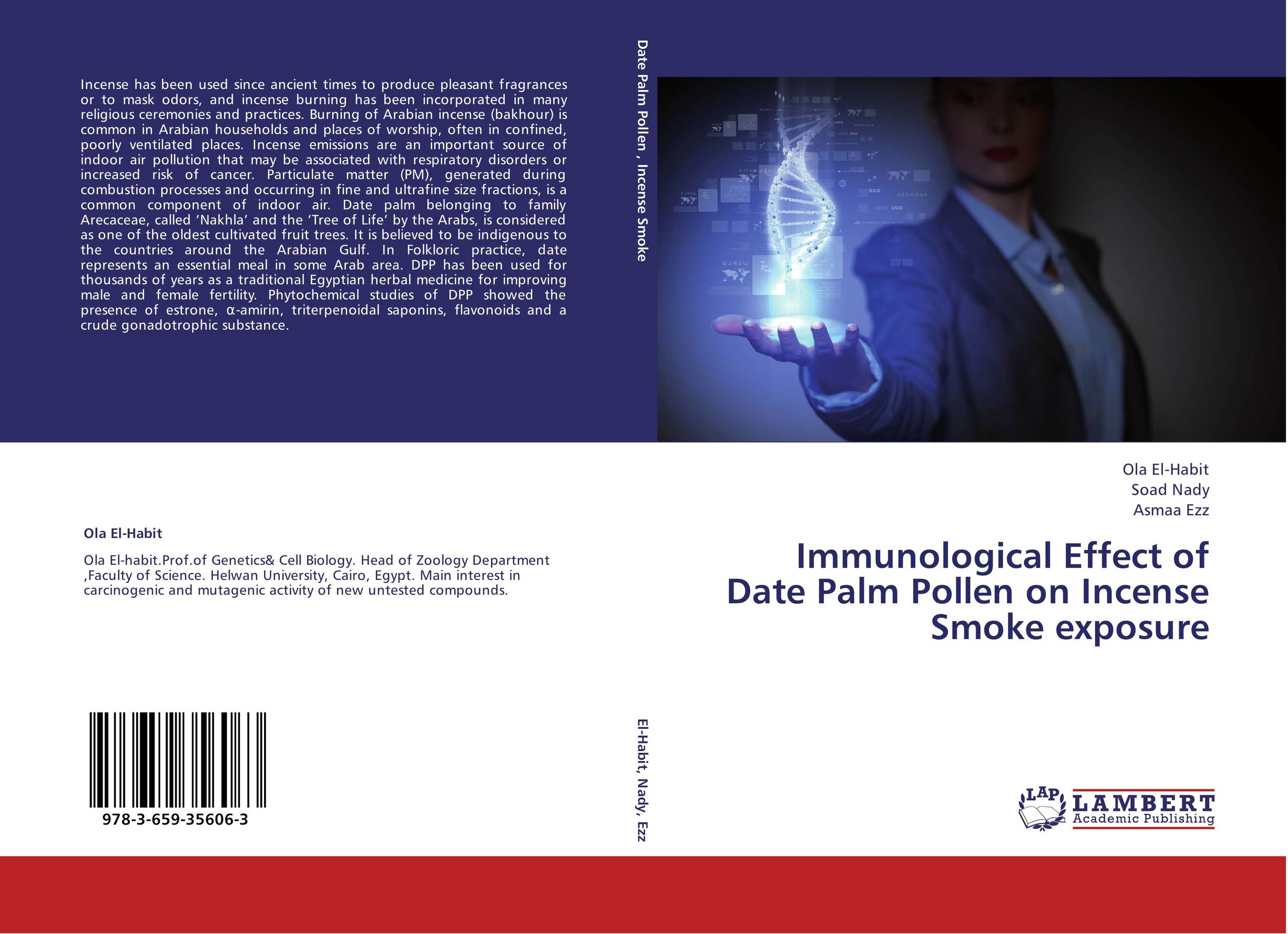| Поиск по каталогу |
|
(строгое соответствие)
|
- Профессиональная
- Научно-популярная
- Художественная
- Публицистика
- Детская
- Искусство
- Хобби, семья, дом
- Спорт
- Путеводители
- Блокноты, тетради, открытки
Immunological Effect of Date Palm Pollen on Incense Smoke exposure.

В наличии
| Местонахождение: Алматы | Состояние экземпляра: новый |

Бумажная
версия
версия
Автор: Ola El-Habit,Soad Nady and Asmaa Ezz
ISBN: 9783659356063
Год издания: 2013
Формат книги: 60×90/16 (145×215 мм)
Количество страниц: 116
Издательство: LAP LAMBERT Academic Publishing
Цена: 32254 тг
Положить в корзину
| Способы доставки в город Алматы * комплектация (срок до отгрузки) не более 2 рабочих дней |
| Самовывоз из города Алматы (пункты самовывоза партнёра CDEK) |
| Курьерская доставка CDEK из города Москва |
| Доставка Почтой России из города Москва |
Аннотация: Incense has been used since ancient times to produce pleasant fragrances or to mask odors, and incense burning has been incorporated in many religious ceremonies and practices. Burning of Arabian incense (bakhour) is common in Arabian households and places of worship, often in confined, poorly ventilated places. Incense emissions are an important source of indoor air pollution that may be associated with respiratory disorders or increased risk of cancer. Particulate matter (PM), generated during combustion processes and occurring in fine and ultrafine size fractions, is a common component of indoor air. Date palm belonging to family Arecaceae, called ‘Nakhla’ and the ‘Tree of Life’ by the Arabs, is considered as one of the oldest cultivated fruit trees. It is believed to be indigenous to the countries around the Arabian Gulf. In Folkloric practice, date represents an essential meal in some Arab area. DPP has been used for thousands of years as a traditional Egyptian herbal medicine for improving male and female fertility. Phytochemical studies of DPP showed the presence of estrone, ?-amirin, triterpenoidal saponins, flavonoids and a crude gonadotrophic substance.
Ключевые слова: MDA, GSH, DNA fragmentation, Date palm pollen, Incense, splenocytes, MICE



